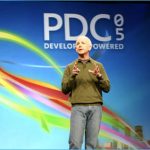Will Office 2010 put Google Apps in its place?

Welcome back, Microsoft. After a few years of getting your butt kicked by Google, it's nice to see you waking up from your monopolistic slumber. You seem to finally get it that both Windows and Office don't have indefinite or guaranteed futures, and you're willing to hang yourself out over the edge a bit to keep them both relevant.
This week, Office 2010, the new version of Microsoft's productivity suite, is being shown to developers and media this week at the company's Worldwide Partner Conference in New Orleans. It includes browser-based versions of Word, Excel, PowerPoint, and OneNote that should forever banish bitter memories of Microsoft's initially half-hearted online productivity efforts.
Google Chrome OS: Too little, too early

I so want to root for Google, but I'm having a tough time denying the power of history.
On the surface, Google's announcement this week that it's developing a new primarily-for-netbooks operating system called Google Chrome OS, is good news for an industry badly in need of an operating system rethink.
GAO pen test brings the hammer down on federal rent-a-cops

I have a little personality test for you today: Which of the following GAO findings released Wednesday made you laugh hardest about the Federal Protective Service's contract security guard program?
· The armed guard photographed at a Level IV (high volume / high public contact / high sensitivity) facility asleep at his desk after taking Percocet, a bottle of which is in front of him in a photo in the GAO report;
Sinofsky promotion to Windows president much deserved, but Ballmer should have done it sooner

The only problem with Microsoft naming Steven Sinofsky president of the Windows division is the timing. He deserved this promotion long ago, and Microsoft has long needed someone in charge of the division.
Microsoft was wrong to wait until Sinofsky's team nearly finished Windows 7 to give out this badly needed promotion. The Client division is hemorrhaging profits, as Vista enthusiasm collapses and PC sales plummet.
The battle ahead: Google Chrome OS vs. Microsoft 'Windows 8'

For Google to emerge as a true contender in just the field of netbook operating systems as soon as 2011 will require it to have smoothly and swiftly cleared an immense obstacle course first. But just the fact that Google will make the attempt will underscore a hard new reality facing Microsoft, one which my friend Carmi Levy pointed out on Monday: The rules of the game for operating systems and applications are changing rapidly, and their underlying principles are being rewritten.
Now, we can adopt Google's quaint little prophecy and sing praises -- perhaps to the tune of "It's a Small World After All" or, if you prefer to go really over the top, "The Battle Hymn of the Republic" -- to the notion that "The Web is now the platform." In our hearts, we may hope for that to be true; in our minds, we all know that's rubbish, holding as much water as Intel's and Microsoft's 1980s notion that x86 architecture "is the platform." There is no single platform for online applications, and whether there ever will be is still a matter of some debate. At this rate, it's not happening.
The Google Revolution begins; Will you join the fight?

July now has a third major independence day. Canada on the first. The United States on the fourth. Google on the seventh.
July 7 is the day Google declared independence from Microsoft dependence. It is the day one Google blog post fired the first shot heard at Lexington and Concord. The post might as well be the first paragraph of the US Declaration of Independence:
Not just Vista: The operating system is dying, too

Okay, so I raised a bit of a stink with last Friday's Wide Angle Zoom. So to make sure my position on Vista, operating systems, Microsoft and the future of the technological world under President Barack Obama's leadership are completely understood, I wanted to address some of the more...ah, pointed perspectives from the Comments section. I've paraphrased the wordings to protect the innocent. Here goes:
Vista is a great operating system. There's nothing wrong with it.
Geeks vs. journalists: A tale of two worldviews

This episode of Recovery is brought to you by a city full of nerds prepping for the Seattle Zombie Walk, because your Rain City geeks are all about the BRAAAAAINS and their undead data centers, and by frequent Betanews commenter PC_Tool, who said something in a comment that got me thinking.
I wrote earlier this week about an essay by Richard Posner that suggested that what the media needs to survive in the era of the Internet is a ban on linking, excerpting and such. Conversations about business models and copyright belong with Lockdown, and we're still talking about them in the comments section there this morning. But there are some things no one talks about concerning the old-line media, and here in the friendly confines of Recovery, I thought I'd go ahead and say them, because they may confirm what you've suspected all along:
Vista's dead: Microsoft kills an OS and no one cares

For anyone still burning a torch for Windows Vista, its time is rapidly approaching. Buy now or forever hold your peace.
I can't say I'm surprised at how any of this has turned out. After all, Vista's launch was, to be charitable, rocky. When it first arrived just before Christmas 2006, it was late, bloated and, for some, expensive. It may have looked pretty on the outside, but critics quickly pounced on it for driver incompatibility, sluggish performance on mainstream -- and sometimes even high-end -- hardware and enough bugs to fill a family-sized tent on a weekend camping expedition. Microsoft didn't help matters with its ill-fated "Vista Capable" designation -- a public relations debacle that convinced buyers who were too lazy to read the fine print that Vista would run just as well on hardware barely suited for XP.
The law vs. the right to know: Whose news is it anyway?
A Michael Jackson post-mortem on Internet journalism

The first I heard of Michael Jackson's death was six minutes before he was pronounced dead. That's saying something, because I'm not exactly the expert on pop culture, so my ability to have prognosticated the near future, based on something a little bird told me, on the subject of a fellow I seriously believed was still living in Tokyo, would normally be suspect. But there it was, in one of my IM feeds at about 5:20 Eastern time last Thursday, "Michael Jackson died."
My friend and colleague Angela Gunn suggested last Friday that something changed in the fabric of online journalism that day -- a high water mark had at last been reached. And indeed she may be correct, because if this Internet thing is capable of predicting the future even six minutes down the road, then I may want to get into the stock trading business.
Myth-busted, or, Would AT&T have forgiven Savage's bill if he wasn't a TV star?

You've got to feel some serious empathy for Adam Savage.
The co-star of the popular Discovery Channel television show Mythbusters found himself on the receiving end of a huge bill after a recent vacation to Montreal, Canada. He had tethered a cellular modem to his laptop, and ended up racking up $11,000 in charges before returning to the US. Upon his return, AT&T, claiming he had used over 9 gigabytes of data during his foreign surfing adventure, helpfully shut his account down. Only when he called them to complain about the outage did he learn he had been hosed.
Afloat on the endless news tide

This episode of Recovery is brought to you by second bananas. Ed McMahon knew he was one, but I'll bet Farrah Fawcett would have been surprised how things worked out. (What, too soon?)
There's an application just launching into beta called thisMoment, and I've had a tab open for it all week in hope that I'll catch some quiet time to try it out. Harry McCracken at Technologizer got there first, and he describes it as "part social network, part media sharing site, and part Facebook application."
A wish list for Office 2010
Kodachrome, the wicked world, and the sunny day

I have a copy of Portraits, a book of Steve McCurry's photographs, on my bookshelf. The Afghan girl is on the cover -- you know the photo, yes you do, and those eyes have never left you. McCurry photographed Sharbat Gula in 1985 when she was a 13-year-old refugee, and about seven years ago he found her again, living in a remote region of Afghanistan.
I was thinking of Sharbat Gula over the weekend as we watched the story of Neda Agha-Soltan unfold -- another young woman in a terrible, riven place. There's another image you won't be forgetting soon. I wish I could, but if I could choose to forget I guess I wouldn't; it would be wrong to deny witness to what we saw in those grainy images.
Recent Headlines
Most Commented Stories
BetaNews, your source for breaking tech news, reviews, and in-depth reporting since 1998.
© 1998-2025 BetaNews, Inc. All Rights Reserved. About Us - Privacy Policy - Cookie Policy - Sitemap.
